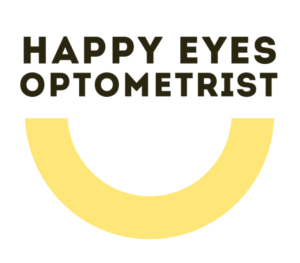Clear, comfortable vision for close work
Hyperopia (long-sightedness) means the eyes focus better at distance than up close. Many people with hyperopia struggle with reading, screens, and near tasks, especially as the day goes on. Kids can sometimes “hide” hyperopia by focusing harder—so regular eye tests are important.
Who is affected?
- Children & teenagers: often asymptomatic; may compensate by over-focusing
- Young adults: near work fatigue, headaches, blurred near vision
- Adults 40+: symptoms worsen with presbyopia, making near tasks harder
Even without obvious blur, hyperopia can cause eye strain, headaches, and reduced concentration—especially with reading and screens.
Signs & symptoms
- Blurry or fluctuating near vision
- Eye strain, headaches, burning or tired eyes after close work
- Avoiding reading or short attention span in children
- Intermittent crossed or wandering eye in kids (possible strabismus)
Why early detection matters (especially for children)
Undercorrected hyperopia can contribute to:
- Learning difficulties from sustained near-work strain
- Strabismus (eye turn) and amblyopia (lazy eye) risk in moderate–high hyperopia
- Reduced reading comfort and classroom performance
Early, accurate correction supports comfortable vision and healthy visual development. Regular reviews help ensure prescriptions stay up to date.
Risks linked with higher hyperopia
- Strabismus/amblyopia risk in childhood if uncorrected
- Narrow-angle/angle-closure glaucoma risk can be higher in anatomically small eyes (assessed during a comprehensive exam)
- Persistent asthenopia (eye strain) affecting work and study
How Happy Eyes can help
We tailor solutions to age, lifestyle and visual demands:
- Prescription glasses for clear, comfortable near and distance vision
- Contact lenses (daily, fortnightly, monthly) including multifocal or toric options when needed
- Functional/binocular vision assessment for focusing and eye-teaming issues
- Children’s care with close monitoring for strabismus/amblyopia risk and timely referrals if required
- Workstation & reading ergonomics to reduce visual stress
What to expect at your appointment
- Comprehensive eye test – vision, refraction, and eye-health check
- Binocular vision & focusing – how your eyes team and sustain near work
- Tailored recommendation – glasses/contacts and practical strategies
- Follow-up plan – especially important for growing eyes and changing demands
Help your child thrive
If your child avoids reading, complains of headaches, or holds books very close, a hyperopia assessment can make a big difference to comfort and learning.
